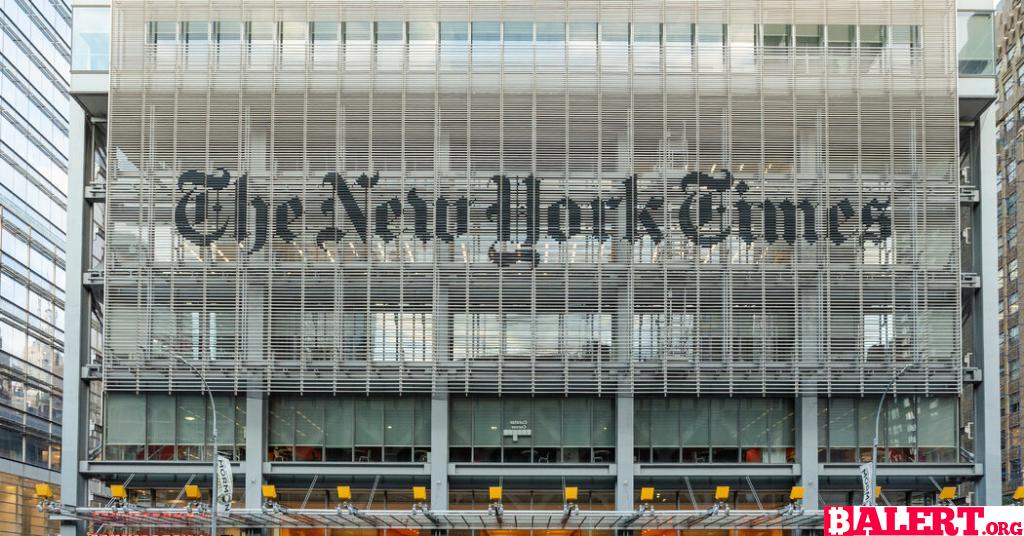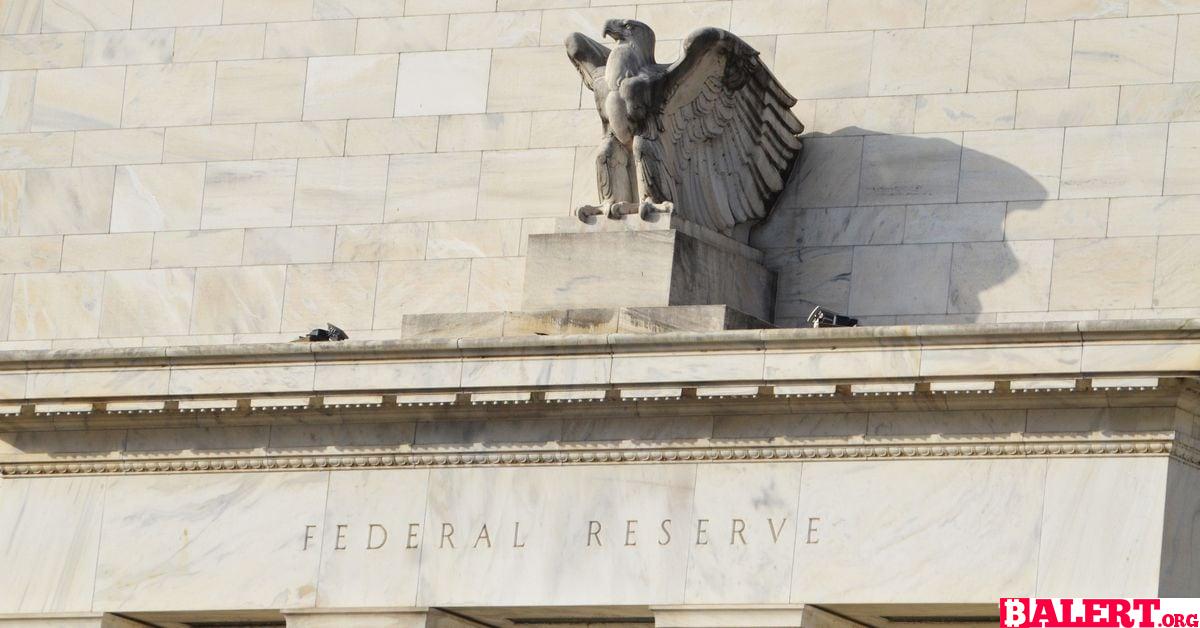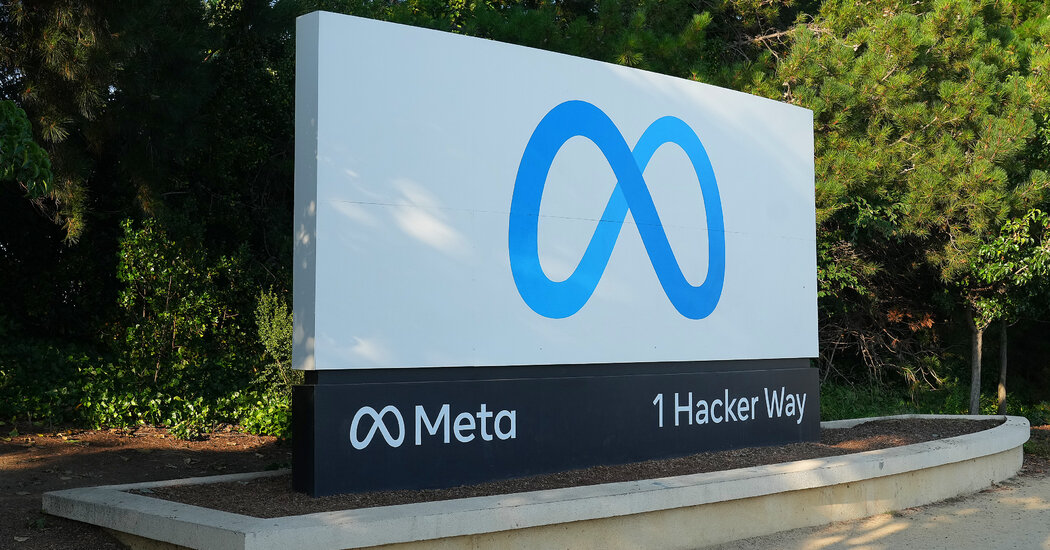Business
The New York Times Discontinues Local Election Endorsements
Discover why The New York Times has decided to discontinue its local election endorsements, exploring the implications for voters and the evolving landscape of political journalism in the digital age.

The New York Times Ends Local Election Endorsements
The New York Times editorial board has made the significant decision to discontinue its practice of endorsing candidates in local New York elections. This includes high-profile races such as those for governor and the mayor of New York City. Kathleen Kingsbury, the Opinion editor of The Times, announced this shift, emphasizing that the publication will still provide insights and analysis regarding the candidates and issues at stake, even without formal endorsements.
This change will take effect immediately, meaning The Times will not endorse any candidates in the upcoming Senate, congressional, or state legislative races this fall. Additionally, they will abstain from endorsing in the 2024 New York City elections, where current Mayor Eric Adams is vying for a second term amidst a growing list of challengers.
In her statement, Kingsbury reaffirmed The Times’s commitment to being a journalistic institution deeply rooted in New York City. However, she did not specify the reasons behind the decision to halt local endorsements. Notably, the editorial board, which is responsible for these endorsements, operates independently of the newsroom and will continue its long-standing tradition of endorsing candidates in presidential elections, a practice that dates back to 1860.
This decision aligns with a broader trend observed among various news organizations, many of which are moving away from political endorsements. In 2022, Alden Global Capital, the owner of the second-largest newspaper chain in the U.S., declared that its 200 newspapers would cease endorsing candidates in presidential, Senate, and gubernatorial races, citing reader confusion regarding the distinction between news reporting and opinion pieces. Similarly, the new management of The Baltimore Sun announced in January that they would also stop making endorsements.
Over recent years, The Times has reduced the frequency of its editorial publications. For instance, in a note to readers in February 2020, the Opinion editor stated that the editorial board would limit its commentary to issues of significant importance rather than publishing multiple editorials daily.
The decision to end local endorsements is expected to resonate within the competitive landscape of New York politics, where the editorial board’s opinions have historically influenced candidates and voters alike. Since 1897, The Times has consistently made editorial endorsements in every New York City mayoral election, supporting both Democratic and Republican candidates. Campaigns for local offices often devise intricate strategies to win the board’s favor, as these endorsements can considerably impact electoral dynamics.
For example, during the 2021 Democratic primary for mayor, Kathryn Garcia, previously a relatively unknown sanitation commissioner, experienced a notable surge in fundraising and media coverage after receiving The Times’s endorsement. This support propelled her to a close second-place finish in the primary.
As political strategist Stu Loeser, who has advised numerous Democratic candidates for mayor, governor, and U.S. Senate, remarked, the significance of The Times’s endorsements extends beyond merely identifying a frontrunner. He noted, “It mattered because it helped keep candidates honest, preventing them from resorting to cheap shots and encouraging them to address tough issues rather than simply catering to popular opinion.”
Business
Bhutan’s Strategic Investment in Bitcoin: A New Era for the Himalayan Kingdom
Explore how Bhutan is embracing Bitcoin as a strategic investment, marking a transformative shift for the Himalayan kingdom. Discover the implications of this move on its economy, sustainability, and future in the digital age.

Buddhist Kingdom’s Bold Move into Bitcoin
A stunning landlocked nation nestled between India and China, Bhutan has made headlines by accumulating significant bitcoin (BTC) holdings totaling over $780 million in recent years. This amount represents nearly one-third of the country’s gross domestic product (GDP), positioning Bhutan as the holder of the fourth-largest state-owned stash of BTC, as revealed by the on-chain analytics tool Arkham.
Known for its unique approach to governance, Bhutan emphasizes the happiness of its fewer than 900,000 citizens as a more meaningful metric of well-being than traditional economic indicators. This Himalayan kingdom has become the second nation, following El Salvador, to officially embrace BTC as part of its national strategy, incorporating it into the state-owned Druk Holdings fund.
According to Arkham, Bhutan has established bitcoin mining facilities across various locations, with the most significant operation situated on the site of the now-defunct Education City project. Unlike many governments that acquire BTC through asset seizures related to law enforcement, Bhutan’s holdings have originated from extensive bitcoin mining activities, which have seen a remarkable increase since early 2023.
These mining operations are likely connected to Bitdeer (BTDR), a prominent player in the cryptocurrency mining sector. In 2023, the Singapore-based firm announced its collaboration with the Bhutanese government to develop cryptocurrency mining operations in Southeast Asia, successfully raising over $500 million for this ambitious venture. Following this announcement, Bitdeer disclosed that it had completed the first phase of a 100 megawatt (MW) mining facility.
Looking ahead, Bitdeer announced plans to expand Bhutan’s mining capacity to a staggering 600 MW by 2025, reflecting the growing significance of this initiative.
Despite its small geographic size, even smaller than Switzerland, Bhutan faces challenges such as limited economic diversification and an underdeveloped private sector. The nation primarily relies on sectors like hydropower, tourism, and agriculture to generate revenue. In 2022, Bhutan’s GDP was recorded at just under $3 billion, approximately half that of the Maldives.
To bolster its economy, Druk Holdings is exploring opportunities across various sectors. The organization’s website highlights “digital assets” as a key focus area in its technology-driven investment strategy, which also includes projects in hydropower and emerging digital realms like the metaverse.
Recent activities in the Druk wallets, as monitored by Arkham, indicate a flurry of deposit and withdrawal transactions in recent weeks. The fund has received multiple deposits of up to 2 BTC from Foundry, another mining entity, as well as from other unidentified bitcoin addresses during the past week. Additionally, Druk Holdings has periodically transferred bitcoin to various addresses, including crypto exchanges. One notable transaction from early July involved a transfer of over $25 million worth of BTC sent to the crypto exchange Kraken, suggesting that it was likely sold to capitalize on market conditions.
Business
Bitcoin and Crypto Markets React to Anticipated Federal Rate Cuts
Explore how Bitcoin and cryptocurrency markets are responding to the anticipated Federal rate cuts. Discover the implications for investors and the broader financial landscape in this insightful analysis.

Bitcoin and Crypto Markets Await Federal Rate Cuts
Bitcoin (BTC) and the broader cryptocurrency markets have seen minimal fluctuations over the past 24 hours as traders remain cautious ahead of the upcoming Federal Open Market Committee (FOMC) meeting on Wednesday. This meeting is particularly significant, as officials are anticipated to announce the first interest rate cuts in four years. Currently, Bitcoin is trading just below $58,500, specifically at $58,480, reflecting a relatively stable performance. The CoinDesk 20 (CD20), a benchmark for the largest digital assets, has experienced a slight increase, trading above the 1,800 mark.
In terms of daily activity, inflows into Bitcoin exchange-traded funds (ETFs) have amounted to $12.9 million, with a substantial portion directed towards BlackRock’s IBIT. Analysts widely expect the Fed to unveil a rate cut on September 18, signaling the beginning of a potential easing cycle that has historically provided support for risk assets, including Bitcoin.
As of Tuesday morning in Asia, the 30-Day Fed Funds futures prices indicate that traders perceive a 67% likelihood of a significant 50 basis points rate cut, bringing the target range to 4.7%-5%. This is an increase from Monday’s implied probability of 50% and a notable rise from the 25% probability reported a month ago. On Polymarket, traders are assigning a 57% chance of a decrease exceeding 50 basis points, alongside a 41% chance of a 25 basis points cut.
Meanwhile, the overall market remains relatively stable. Noteworthy movements have been observed, such as XRP rising by 3.5%, SUI increasing by 2.5%, and Fantom’s FTM surging by 10.5%, buoyed by positive market sentiment surrounding its forthcoming rebranding to Sonic.
Trump’s World Liberty Financial to Introduce WLFI Token
In other news, the team behind World Liberty Financial, a project receiving endorsement from former President Donald Trump and his family, has announced the launch of a governance token. However, it is crucial to note that this token will only be available to accredited U.S. investors. During a livestream that lasted over two hours, the team highlighted that the token is intended for governance participation rather than for economic profit and did not disclose a specific launch date during the X Spaces stream.
Throughout the livestream, Trump himself did not specifically mention the token or provide an endorsement. Instead, he reiterated his general views on cryptocurrency policy, much of which echoed his previous public statements, including those made at the recent Bitcoin Conference held in Nashville.
Figure Markets Launches Exchange with Real Estate-Backed Yields
In a groundbreaking development within the crypto space, Figure Markets has announced the launch of its exchange, coinciding with the Token2049 event in Singapore. Founded by Mike Cagney, a co-founder of SoFi, Figure Markets introduces an innovative method for generating yields for users who store their cryptocurrency on the platform.
According to a recent release, Figure Markets claims it can offer returns of up to 8% for non-USD and stablecoin balances. This is achieved by leveraging a fund backed by real-world assets, particularly home equity loans. The operational model involves traders depositing their funds into Figure Markets, which are then pooled and lent to Figure Technologies for the issuance of secured home equity loans. The interest paid by borrowers on these loans creates a spread that not only covers operational costs but also provides returns to investors. These investors benefit from dual recourse protections, daily liquidity, and interest payments that accrue based on the duration of their investments.
While Real World Assets (RWAs) are progressively becoming a noteworthy aspect of the cryptocurrency industry, there are still very few applications that seek to derive yield from these assets to support their operations. Prior to the launch of Figure in 2023, Cagney had withdrawn the company’s bid for a U.S. federal bank charter amid regulatory scrutiny, opting instead to pursue partnerships with established banks.
Business
Meta Bans Russian Media Outlets Amid Disinformation Concerns
In response to rising disinformation concerns, Meta has imposed bans on several Russian media outlets. This decision highlights the ongoing battle against misinformation and the platform’s commitment to ensuring accurate information for its users.

Meta Takes Strong Action Against Russian Media Outlets
On Monday, Meta announced a significant initiative to prohibit Russian media outlets, including the state-funded television network RT, from utilizing its platforms. This decision comes in light of ongoing scrutiny in the United States regarding these outlets’ involvement in covert influence campaigns designed to manipulate online discourse across various social media platforms.
Meta, the parent company of popular applications such as Facebook, Instagram, and WhatsApp, stated that the ban would be implemented in the coming days. This decisive action marks an escalation in the ongoing efforts to combat Russian state media actors, which U.S. intelligence officials have identified as key players in disinformation operations that span the globe, infiltrating the world’s largest social networking sites.
In a formal statement, Meta expressed, “After thorough consideration, we have expanded our current enforcement measures against Russian state media outlets. Rossiya Segodnya, RT, and other related entities are now prohibited from our applications worldwide due to their involvement in foreign interference activities.”
Recently, U.S. authorities have tightened their grip on RT, particularly for its attempts to meddle in the upcoming presidential election scheduled for November. On Friday, the United States, in conjunction with Canada and Britain, accused RT of functioning as a conduit for Russian intelligence agencies. They announced new sanctions aimed at curtailing international funding sources that support disinformation campaigns globally.
This crackdown follows the federal indictment of two RT employees, who allegedly funneled at least $9.7 million to finance American podcasters on Tenet Media, a video-streaming service based in Tennessee. The goal was to amplify the Kremlin’s propaganda and undermine the integrity of the American democratic process.
Secretary of State Antony J. Blinken emphasized the broader implications of these tactics, stating, “We’re revealing how Russia employs similar strategies globally.” He further noted, “The Russian weaponization of disinformation to destabilize and polarize free and open societies is a challenge that impacts every corner of the world.”
-

 Business5 months ago
Business5 months agoThe Significance of Jackson Hole: A Central Banking Tradition
-

 Tech4 months ago
Tech4 months agoNew Leaks and Features About the Samsung Galaxy S25 Ultra
-

 Business7 months ago
Business7 months agoObituary: Dan Collins
-

 Article7 months ago
Article7 months agoCreative Design Applications Developed with Artificial Intelligence
-

 Business4 months ago
Business4 months agoBhutan’s Strategic Investment in Bitcoin: A New Era for the Himalayan Kingdom
-

 World4 months ago
World4 months agoThierry Breton Resigns: Impact on European Union Leadership
-

 Gaming4 months ago
Gaming4 months agoNew Details and Trailer Released for Dead Rising Deluxe Remaster
-

 Gaming4 months ago
Gaming4 months agoNew Details for Alan Wake 2 and PlayStation 5 Pro Announcement












